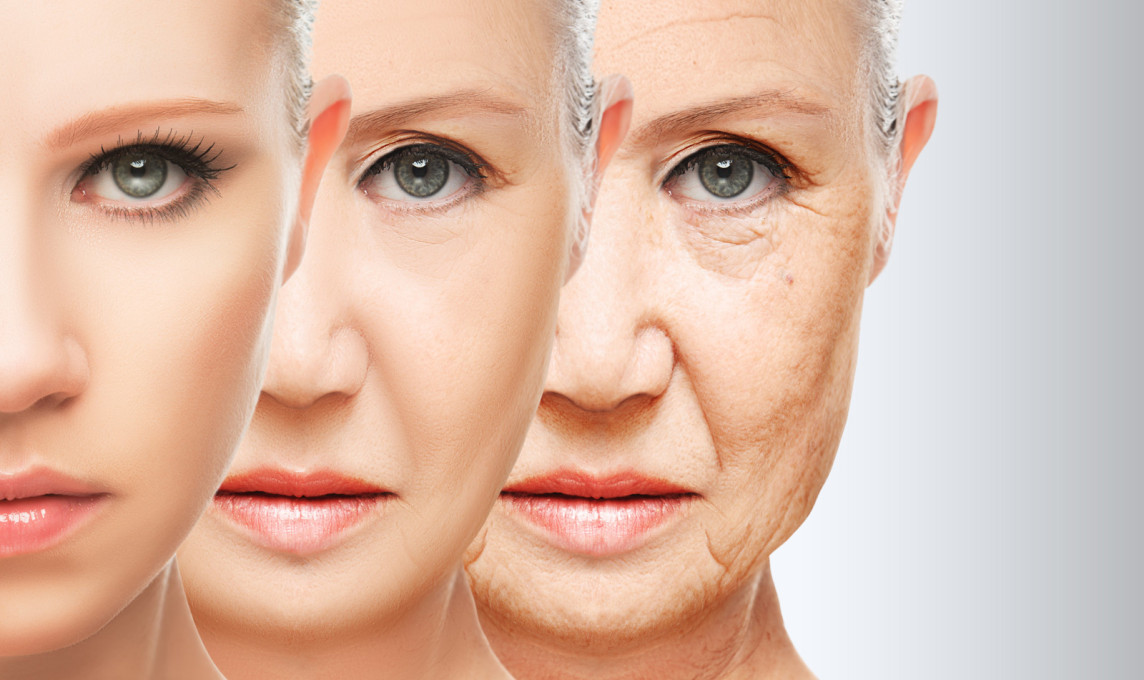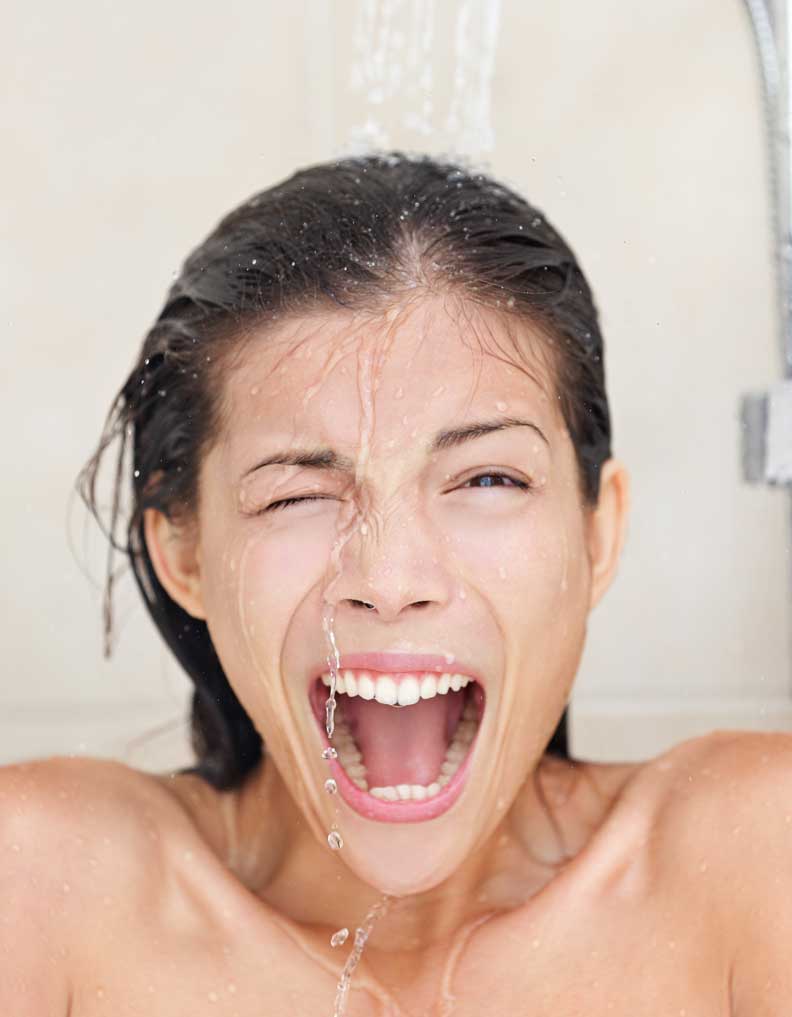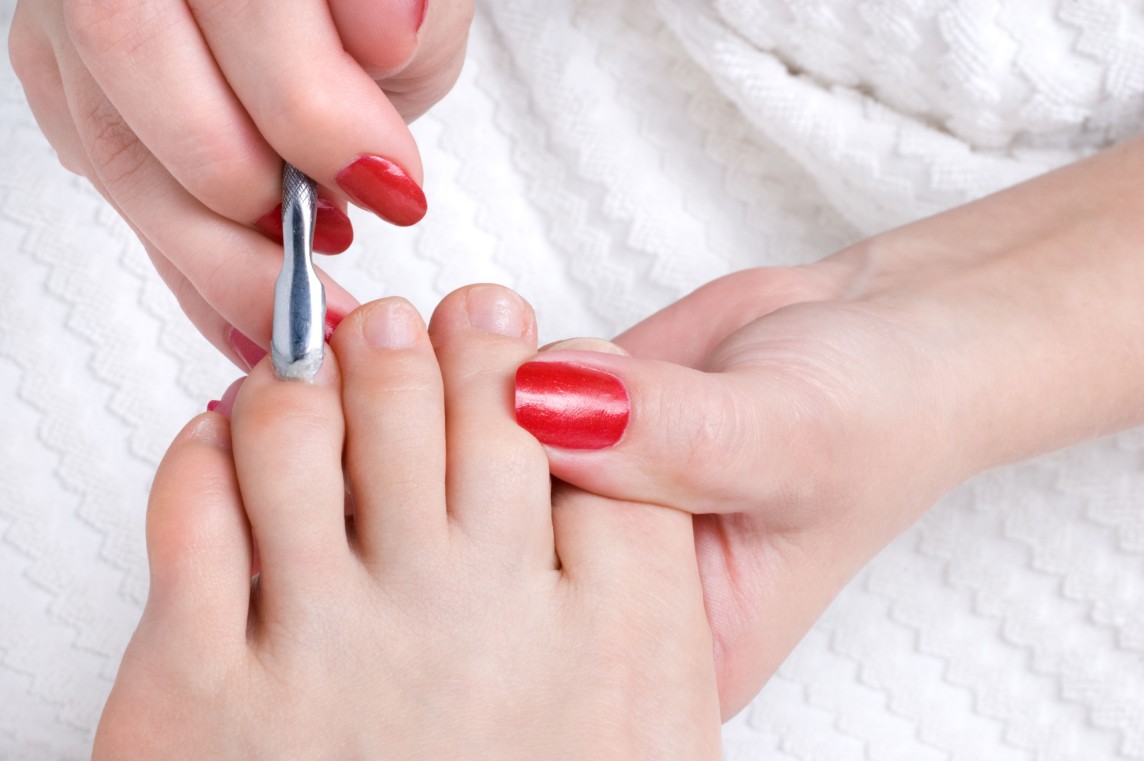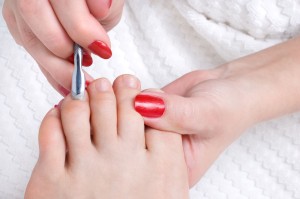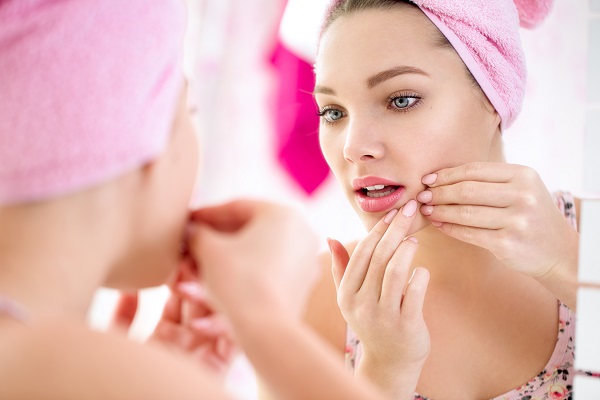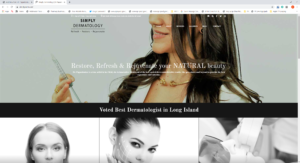What can we do about crepey skin?
Are Antibacterial Cleansers More Harmful Than Good?
SHOULD YOU USE ANTIBACTERIAL CLEANSERS?
Ever wonder ‘whatever happened to good old fashioned soap’? Well it is still out there, but the question is does antibacterial soap work better? And should you be using this to protect yourself from germs? This is a question that has a 2 part answer: The first is for those who have normal skin, and second, for those who suffer from skin conditions such as eczema or recurrent folliculitis or other skin infections. There are many factors that should be considered when evaluating which kinds of soaps we should be using on our skin every day.
BACTERIA AND YOUR SKIN.
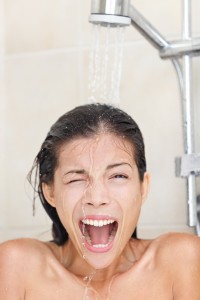 Many people do not know this, but your skin is always colonized by billions of bacteria, and that is actually normal. We are as a culture afraid of bacteria on our skin, but what we don’t realize is that we also harbor beneficial bacteria, this bacteria helps maintain a balance of good & bad bacteria, and even fungus. Just like you take probiotics for your gut and digestion, you have bacteria on your skin as well that serve a purpose. For well over a decade neonatal intensive care units have recognized this importance of skin flora, they have newborns and premature babies in skin to skin contact with their mothers, and have data to show that this increases rates of survival and reduces the rates of opportunistic infections. In comparison the babies that are kept under near sterile conditions had a higher risk of infections. In addition there are even topical medications that are being researched now on how to populate skin with healthy colonies of bacteria to improve skin conditions such bad as eczema and acne. So consider this before you buy a bar of soap that is antibacterial.
Many people do not know this, but your skin is always colonized by billions of bacteria, and that is actually normal. We are as a culture afraid of bacteria on our skin, but what we don’t realize is that we also harbor beneficial bacteria, this bacteria helps maintain a balance of good & bad bacteria, and even fungus. Just like you take probiotics for your gut and digestion, you have bacteria on your skin as well that serve a purpose. For well over a decade neonatal intensive care units have recognized this importance of skin flora, they have newborns and premature babies in skin to skin contact with their mothers, and have data to show that this increases rates of survival and reduces the rates of opportunistic infections. In comparison the babies that are kept under near sterile conditions had a higher risk of infections. In addition there are even topical medications that are being researched now on how to populate skin with healthy colonies of bacteria to improve skin conditions such bad as eczema and acne. So consider this before you buy a bar of soap that is antibacterial.
Antibacterial cleansers can have chemicals that are not particularly healthy to be used every day all over your skin. For example, the ingredient triclosan which has been shown to be a carcinogen and has been pulled by several companies. Most antibacterial cleansers can also be harsh on the skin and can be very drying, which is another reason I prefer to avoid their use.
SKIN CONDITIONS
The second answer to this question is for those who are suffering from a skin conditions such as acne, eczema or recurrent folliculitis, an there are other options that may be more helpful to control bacteria on the skin. For acne: a cleanser that contains salicylic acid or benzoyl peroxide may work very well. To treat moderate to severe eczema a dilute bleach bath (1/2 cup bleach to a full bath) once per week can be very helpful, or hibiclense if you prefer to wash in the shower. Folliculitis can also be controlled with a benzoyl peroxide containing wash.
However, to prevent the spread of germs & infections you should practice good hand hygiene, wash with soap and water when possible, and you can use a hand sanitizer when traveling or in public spaces. To sanitize your hands an alcohol based sanitizer will kill >99% of germs. For more sensitive skin alcohol free sanitizers are available for use on hands, and children’s toys and are non-toxic.
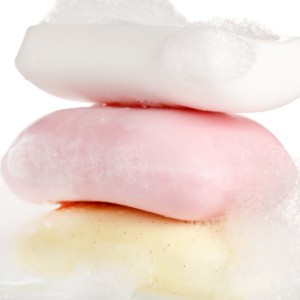
Brittle Nails, No More!
GOODBYE SHORT BRITTLE NAILS! HERE ARE THE BEST 5 TIPS TO IMPROVE THE HEALTH OF YOUR NAILS!
Nails that easily break, split, refuse to grow, and appear ridged are a common issue. Many times this can be caused or either worsened by certain practices: exposure to harsh soaps and water numerous times per day, frequent use of nail polish and polish removers, alcohol based hand sanitizers, and rarely can be a sign of an underactive thyroid or other systemic deficiency or condition. If you have other symptoms such as dry brittle hair, dry skin, lethargy or weight-gain you should see your dermatologist for an evaluation and work up to rule out hypothyroidism.
Nails grow very slowly and it can take on average 3 months to see improvement in nail growth if positive changes in the daily routine are made.
Here is a list of 5 recommendations to help your nails:
- Take daily Biotin 5,000mcg/day, this supplement has been shown to help nails grow healthier
- Use gentle cleansers to wash hands, stop alcohol based hand sanitizers, and polish removers.
- Moisturize your hands several times throughout the day
- Apply a cuticle oil before bedtime. Rosehip oil, Coconut oil or Argan oil all work well!
- If no improvement is noticed, consider seeing your Dermatologist. Your doctor may want to prescribe a topical medication, Genadur, for nails that is applied to nails twice daily. Genadur is an FDA approved prescribed medication which can make a big difference in nails that otherwise won’t improve.
Ask these 7 questions prior to a cosmetic procedure!
Ask these 7 questions prior to a cosmetic procedure!
The Pimple Emergency!
Who hasn’t had a pimple emergency at one point in their life, if you are lucky and haven’t had to deal with this…then that is just unfair, but maybe take some notes for your friends and family!
First treat the pimple, then camouflage it.
Treat the Pimple
- Ice it: Wrap an ice cube in a soft cloth and apply gently to the affected area for 20-30 seconds, rest for a minute and apply again. Cold reduces blood flow to the area and may reduce swelling and inflammation. Don’t press hard and don’t leave the ice on too long or you may irritate the skin.
- Apply an over-the-counter acne preparation that contains benzoyl peroxide or salicylic acid which kill the bacteria that cause pimples. These creams and lotions also help shed layers of dead cells, leaving skin fresher and rejuvenated. A 2.5% concentration of benzoyl peroxide is sufficient and is less irritating than stronger formulations. Overusing acne preparations will irritate the skin; follow directions precisely.
- Apply an over-the-counter hydrocortisone cream that contains 1% hydrocortisone. This medication provides pain relief, and can help to reduce swelling and redness in the area of the pimple. This should not be used every day, or for acne prevention, if used all over the face every day it can actually promote acne.
Camouflage the Pimple
- Eye drops that are formulated to reduce redness in the eyes can also be effective in reducing the redness and irritation of acne. (Tetrahydrozoline hydrochloride is the ingredient to look for.) Apply to the area with a cotton swab. Or combine with cold by soaking the cotton swab with eye drop solution, freezing for an hour or so, then applying to the pimple.
- Conceal the blemish with a heavy-duty cosmetic concealer. Consider blending two shades to avoid using one that’s either too light or too dark, which will accentuate the pimple. Blend carefully into the surrounding area.
What NOT To Do
- Don’t pick, pop, squeeze or scratch an inflamed pimple. It will take longer to heal, will be more likely to leave a scar and will be harder to camouflage. Try to keep your hands away from your face entirely.
- Don’t use aspirin, toothpaste or other home remedies that aren’t formulated for the skin. They may actually trigger acne or cause irritation.
- Don’t expect a facial, chemical peel or other spa treatment to provide a quick fix. While they may ultimately have beneficial effects, in the short term they are likely to leave the skin red and irritated.
- Don’t overuse astringents, if used appropriately this can help the skin to contract and may shrink the pimple while also reducing the size of your pores. Pharmaceutical astringents that contain benzoyl peroxide or salicylic acid also fight pimple-causing bacteria. Natural astringents include: witch hazel (choose one without alcohol); lemon juice (dilute lemon juice with water and dab with a cotton swab over the area); and green tea (steep a tea bag in hot water, drain and apply directly).
- Don’t apply undiluted tea tree oil, an antibacterial essential oil with anti-inflammatory properties, if used directly this may be irritating to the skin. There hasn’t been much research on its effectiveness but it’s safe to use in diluted form. Dilute with coconut oil or argan oil and dab it on with a cotton swab.
General skin care advice won’t help in an emergency but good skin hygiene will help you avoid those emergencies, In a true pimple emergency call your dermatologist and see if you can be seen that same day, a dermatologist can inject the pimple with low potency cortisone which dramatically helps to resolve the break-out. For prevention, start by washing your face twice a day with a gentle facial cleanser; follow with moisturizer. Pat your face dry with a soft towel; don’t rub. Drink plenty of water. Exercise regularly and shower after exercising to remove excess perspiration from your skin. You can’t completely prevent your skin from acting up but you can reduce the likelihood of it happening at an inopportune moment and be prepared if it does.

